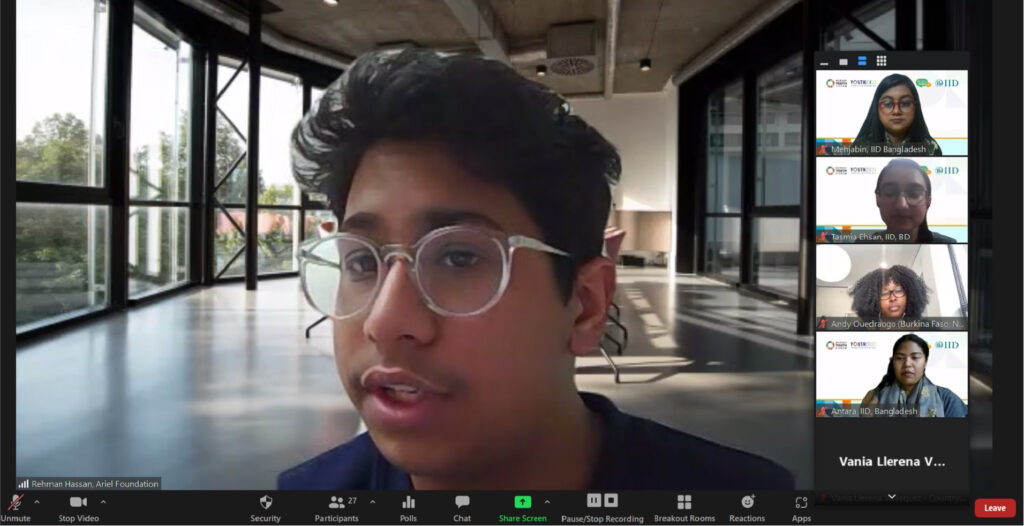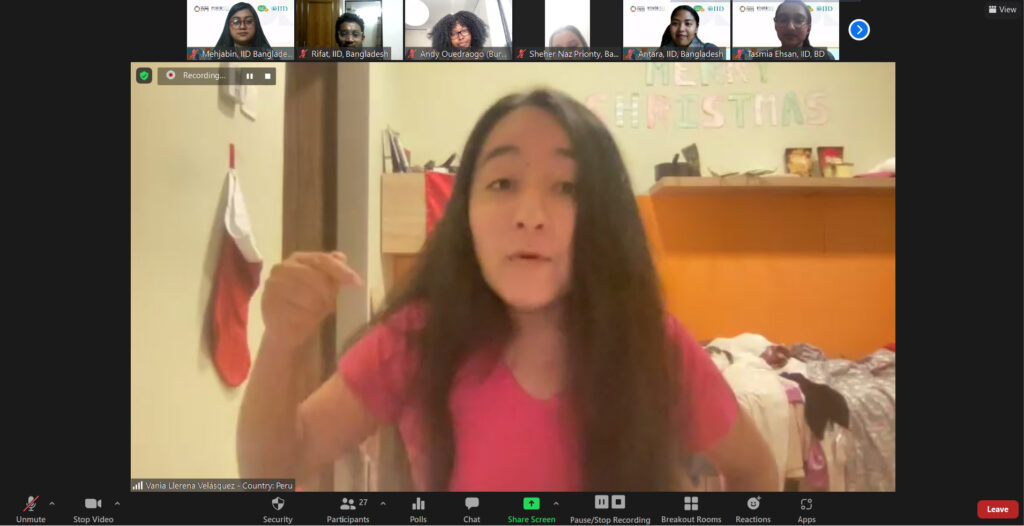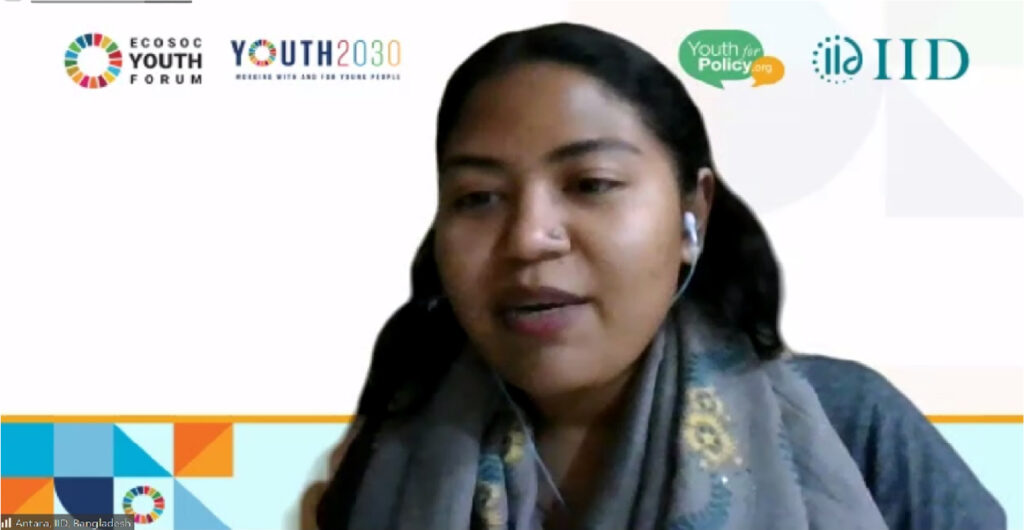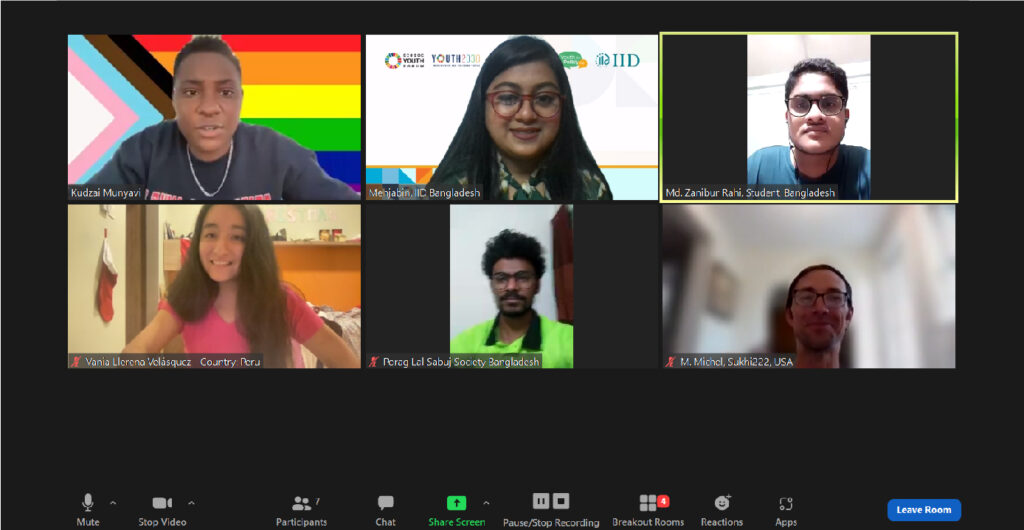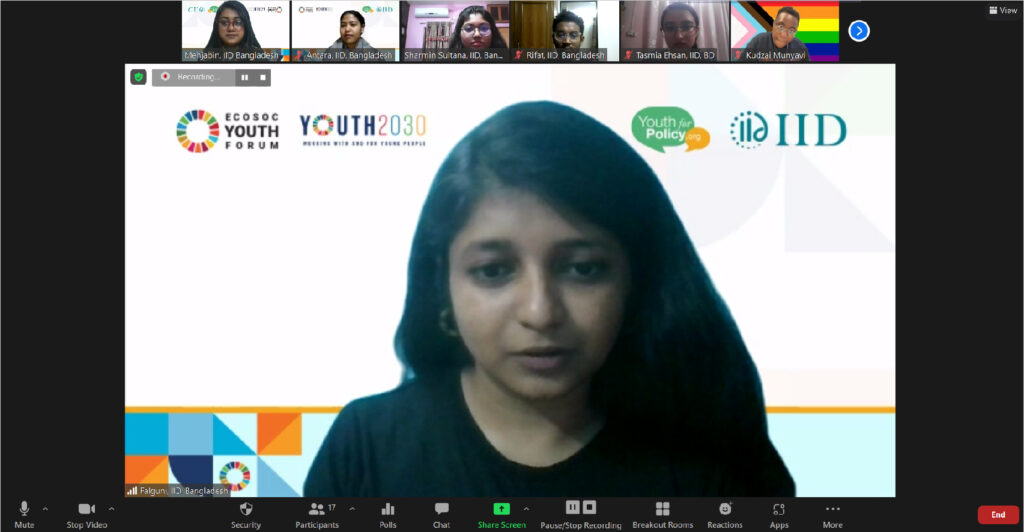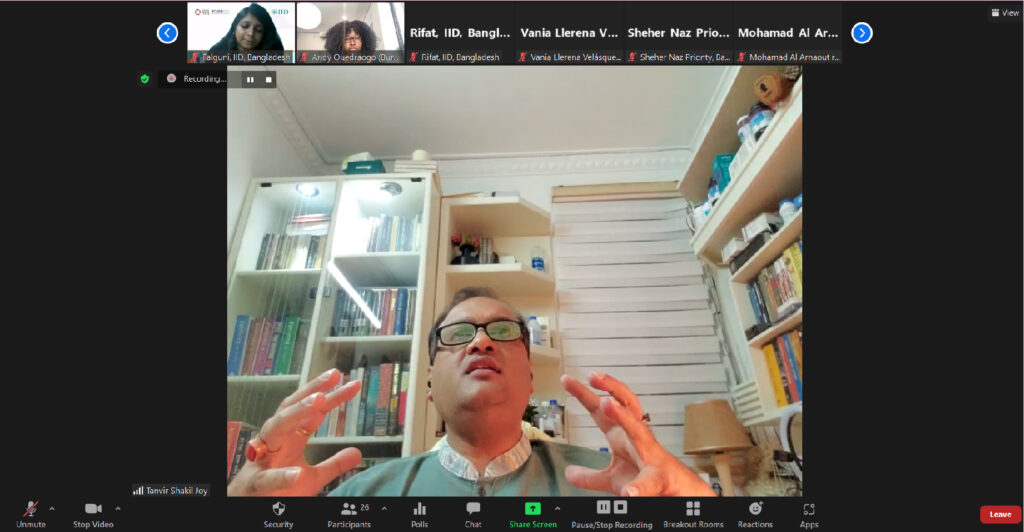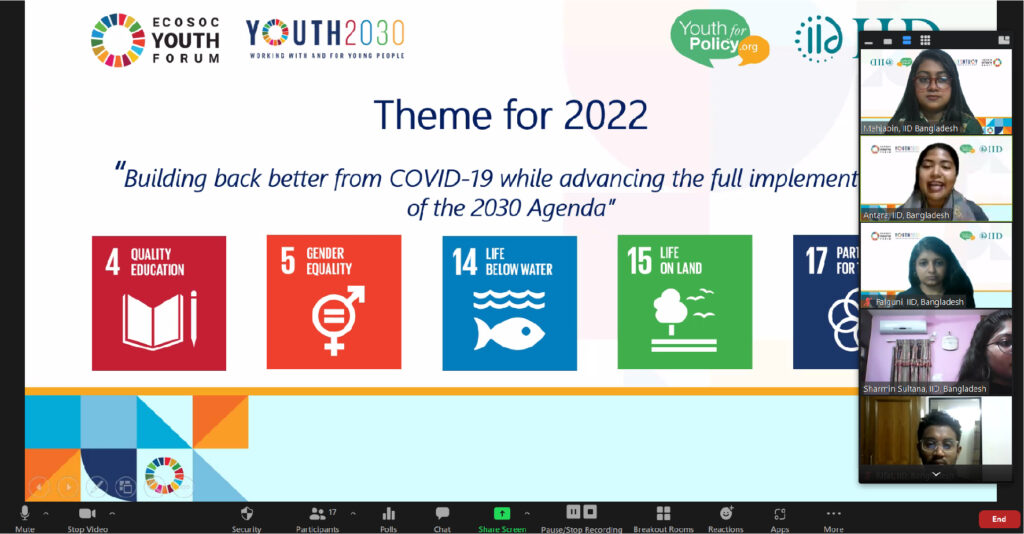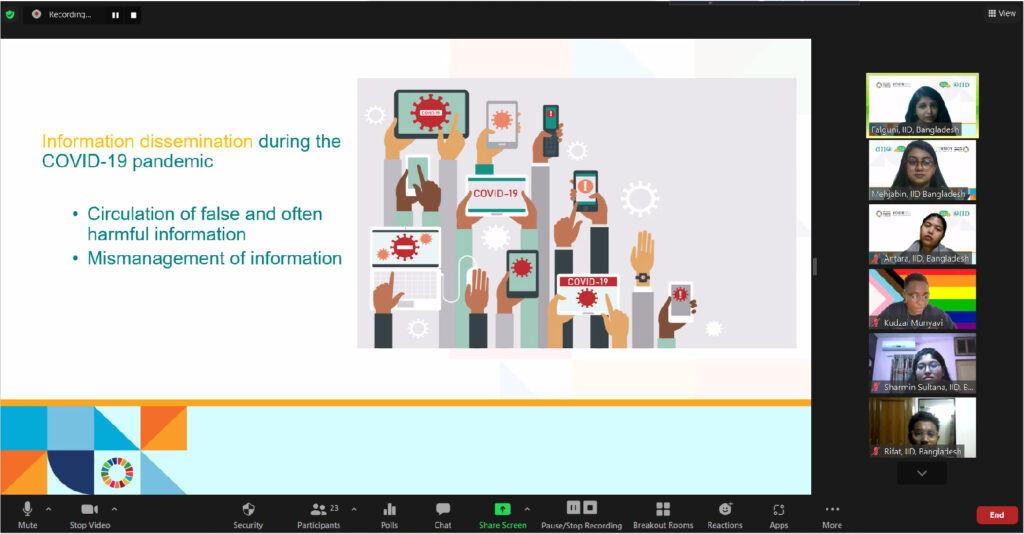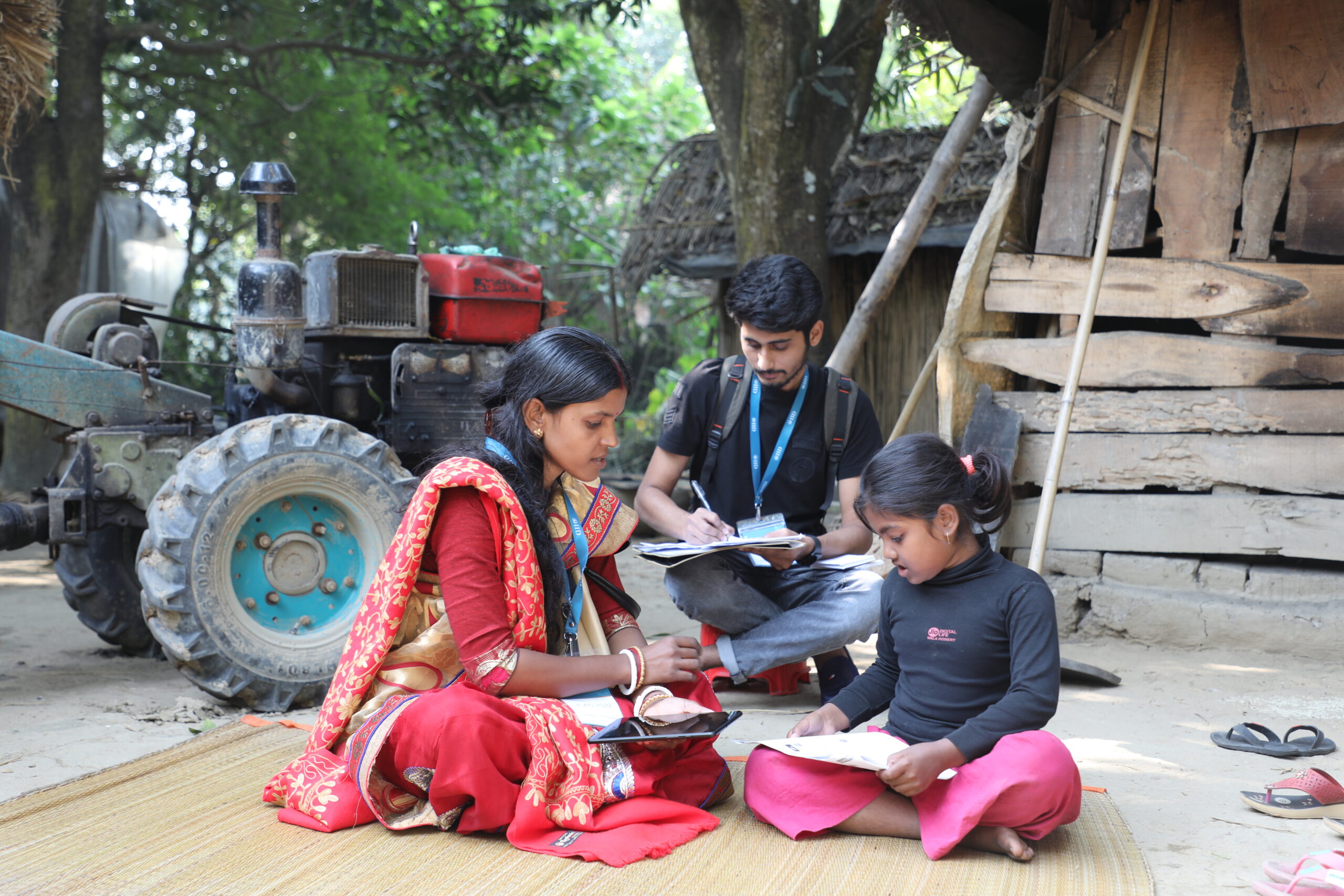The weakening democratic institutions all around the world is a concern for all citizens, but most specifically for the 1.8 billion young population who are either going to be future beneficiaries or sufferers of decisions in which they had little to no input. Thus, youth participation in democracy is essential and all young people have to work towards becoming decision makers today and not wait for tomorrow.
Globally, political dysfunction has continued to shrink the space for civil society, in particular youth participation in political decision making. Young people continue to suffer disproportionately from conflict, and poverty, exacerbated further by the severe effects of COVID- 19, notwithstanding the limited steps towards youth empowerment. Moreover, while youth and future generations will shoulder much of the long-term economic and social consequences of the crisis, opportunities for young people’s political participation are still limited. Despite this, young people have shown their resilience during the pandemic. They have continued to find ways to engage, support one another and demand and drive change. However, lack of institutional support may bar long term change.![]()
The ECOSOC Youth Forum 2022 is a platform for young people to engage in a dialogue with Member States and other actors on concrete actions to rebuild from COVID-19 and to advance towards the implementation of the Sustainable Development Goals (SDGs) Decade of Action. IID with its youth network Youth for Policy (YfP) organized a side event for the Forum titled ‘Youth Participation in Democratic Process for a Sustainable Future’ on Monday, 18th April, 2022.
Representatives of youth organizations from all around the world came together as participants to engage on the topic of democratic participation. The keynote presentation was given by Falguni Reza, Joint Director, IID and Head, YfP, followed by working group discussions. Participants identified the lack of capacity development programs, and lack of trust in government as key challenges youth face in participating in the democratic process. They discussed the ways youth can play a role in the policy process, and the strategies that can be applied to better support civic education for young people. Participants also highlighted some of the exemplary practices of youth promoting democracy during the COVID-19 pandemic.
Honorable Member of Parliament of Bangladesh and Secretary General of the Parliamentary Caucus on Social Justice Tanvir Shakil Joy, MP, joined the event as Special Guest. In his concluding remarks he brought forward the issues of apathy and disinterest of young people in joining conventional politics and the necessity of including the youth in formal processes for long term change. He emphasized the need for informed youth in all stages of the policy processes and welcomed adoption of innovative actions to achieve the SDGs.
It is of utmost importance that a systematic process of including the youth in democratic process is put in place to facilitate an informed, inclusive and democratic development for the building of a knowledge society.

